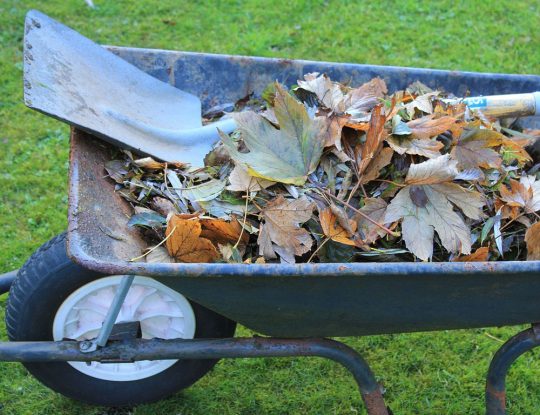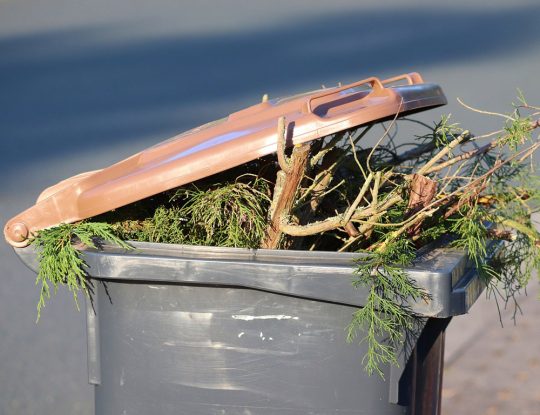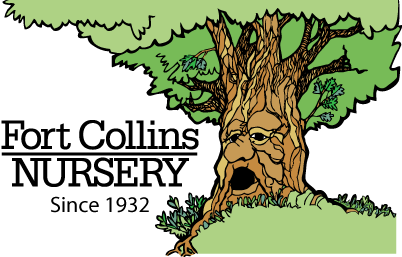By Shannon Moreau

As autumn settles over us we are left with the task of cleaning up our garden beds and getting them ready for the winter. The most common sources of garden waste at this point are spent crops from this past summer and the blanket of leaves falling from trees and shrubs. Fortunately, these materials have many uses throughout your garden.
At-home uses
I prefer to gather up all my fallen leaves and – after my dogs are done playing in the piles – mulch them using my mower. This is an important step – shredding the leaves helps them decompose more quickly. Leaf mulch has become a staple throughout my garden. I use it to cover empty beds during the dormant season, to fill rose collars, and to mulch perennial beds.
Pine needles are another great option for mulching along pathways and through perennial gardens. Although they become more acidic as they break down, a light layer of pine mulch will not be particularly harmful to plants in the garden. Combining this with leaf mulch is another way to make a little go a long way in your garden. In general, use no more than 3” of mulch in any area.
A frequently asked question we get at Fort Collins Nursery is when to trim back perennials once they stop blooming. I leave most of my plants up through fall and winter, doing most trimming in the spring. The stems and flowers provide food sources, refuge during extra cold nights, and nesting spots for pollinators and other wildlife.
Some materials make fabulous options for fall decorations. Let them dry completely in the landscape then trim the part that you would like to use in your arrangements. Ornamental grass seed heads, hydrangea blooms, poppy pods, and oak leaves are a few of my favorites. Corn stalks can be harvested once they are done producing ears of corn and are frequently used for fall decorations.
Of course, any green materials in your garden can be composted. There are several helpful guides available from the Colorado State University Extension to help get your compost started and ready for the winter. Whether mulching or composting, do not use materials that have been treated with herbicides or pesticides to ensure it does not contaminate your pile or other areas in your yard.
Drop-off sites

If you don’t make your own compost, don’t need dried decorations, or are simply feeling a bit overwhelmed with all the green material you’ve cleaned from your yard, there are multiple local businesses that process garden waste. The City of Fort Collins Timberline Recycling Center, Ewing Outdoor Supply, and Doug Weitzel Inc. are a few of my favorites in Fort Collins. If you are farther from Fort Collins, call your local garden center for other recommendations. These organizations take garden debris like leaves, weeds, grass clippings along with large branches and woody materials.
Enjoy this beautiful fall weather, and in between mulching and raking, reflect on what you loved most, what you would like to do differently, and how nice this down time will be!
Originally published on October 18th, 2024. Updated on October 21st, 2024.
